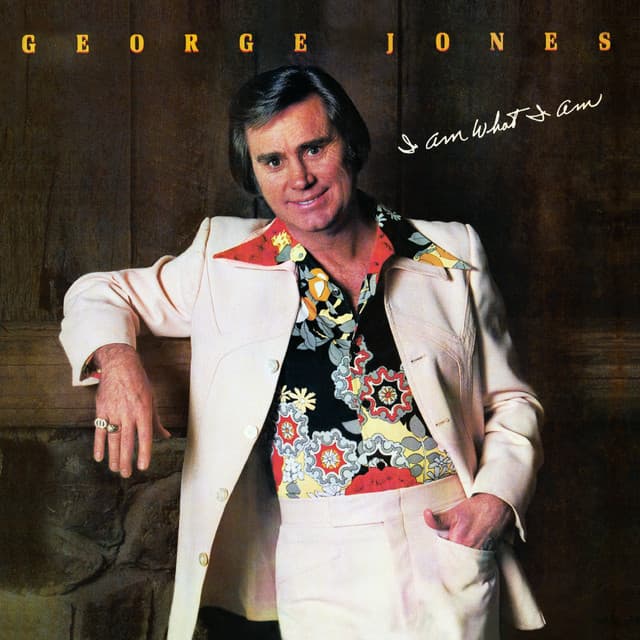
The Bottomless Well of Heartache: A Drunken Requiem to a Lost Love
There are voices in country music that don’t just sing, they feel. They embody the very essence of human frailty and resilience, laying bare the soul with every note. One such voice, unmistakable and unparalleled, belonged to the legendary George Jones. His career was a tapestry woven with threads of triumph and tribulation, and his raw honesty resonated with millions. Today, we delve into one of his most quintessential and profoundly affecting tracks, a song that drips with the bitter truth of a broken heart: “If Drinkin’ Don’t Kill Me (Her Memory Will).”
Released in January 1981, as the third single from his album I Am What I Am, this song quickly became a staple for any fan of classic country. It climbed to the Top 10, peaking at an impressive number 8 on the Billboard Hot Country Singles chart, and also reaching number 25 on the Canadian RPM Country Tracks. This success was a testament to the song’s universal theme, but more so, to Jones’s uncanny ability to inhabit the despair of its lyrics. This period in Jones’s career was a resurgence, following the monumental success of “He Stopped Loving Her Today,” and “If Drinkin’ Don’t Kill Me” proved that his profound connection with songs of sorrow was as strong as ever.
The story behind “If Drinkin’ Don’t Kill Me (Her Memory Will)”, penned by the gifted Harlan Sanders and Rick Beresford, is a stark portrayal of a man drowning his sorrows in alcohol, yet finding no escape from the relentless haunting of a past love. It’s not a narrative of grand gestures or dramatic confrontations; it’s the quiet, agonizing chronicle of a soul slowly succumbing to despair. The song paints a vivid picture of a man waking up in his car, the horn blaring, the neighborhood knowing he’s home drunk again. The lyrics don’t shy away from the self-destructive path, but they clearly articulate that the liquor is merely a temporary reprieve, a futile attempt to obliterate a memory that remains stubbornly intact.
The meaning of “If Drinkin’ Don’t Kill Me (Her Memory Will)” is laid bare in its title: the protagonist is caught in a torturous paradox. He drinks to forget, to numb the searing pain of a lost relationship, but realizes that the true poison is not the alcohol itself, but the inescapable memory of the woman who left him. The song is a bleak confession, a lament of a man utterly consumed by grief, acknowledging that while the alcohol might hasten his physical demise, the emotional death has already been sealed by the lingering presence of her memory. It’s a testament to the idea that some heartbreaks are so profound, no amount of distraction, no amount of oblivion, can truly erase them.
For listeners who lived through those years, especially those who found solace in the raw, unvarnished truth of country music, this song resonates deeply. It stirs a familiar ache, a recognition of struggles endured and battles fought, often in the lonely hours of the night. Jones’s delivery is not just singing; it’s a guttural cry, a ragged whisper, a soulful moan that carries the weight of a thousand heartbreaks. His voice, with its inimitable cracks and nuances, adds layers of authenticity to every word, making the listener feel as if they are privy to a private confession.
This track stands as a timeless embodiment of country music’s capacity to articulate profound sorrow and vulnerability. It speaks to the universal experience of loss, the desperate measures we sometimes take to cope, and the ultimate realization that some wounds simply refuse to heal. It reminds us of a time when songs were less about catchy hooks and more about storytelling, when the artist’s life experiences, even the painful ones, were poured into their art, creating something truly immortal. To listen to “If Drinkin’ Don’t Kill Me (Her Memory Will)” today is to not only hear a classic country song but to feel the enduring power of George Jones, the Possum, pouring his very soul into a timeless ballad of despair and the haunting permanence of a broken heart.